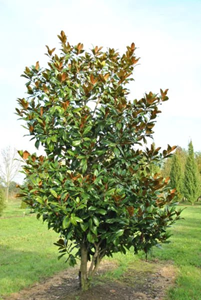Water Conservation Program Implementation
Implementing a water conservation program on a campus can significantly reduce water usage, promote sustainability, and educate the community about the importance of water conservation. Considering this, our institute has a special policy in place to ensure proper water management on campus. The following actions are covered by the policy:
- Assessment and Planning
Water Audit Team of the NSPI conducts a comprehensive water audit to identify areas of high consumption and opportunities for savings.
Furthermore, they establish clear, measurable goals for water reduction based on the audit findings.
- Awareness and Education
Educational programs are organized to inform students and staff about the importance of water conservation.
- Infrastructure Improvements
Low-flow faucets, showerheads, and toilets are installed in campus to reduce water consumption.
NSPI has implemented smart irrigation systems that optimize water use for landscaping.
- Rainwater Harvesting
Almost all of our buildings have sophisticated rainwater collection systems installed. Rainwater is gathered from parking lots and other impermeable surfaces, including rooftops, and directed into an underground reservoir, also known as a closed water tank. After being harvested, this water is cleaned and used for non-potable uses like garden irrigation, toilet flushing, and campus landscaping maintenance.
- Landscape Management
Most of the trees at campus are drought-resistant that require less water and maintenance.
- Behavioral Change Initiatives
Institute authorities always encourage students and staff to take a water conservation pledge and track their usage and organize friendly competitions between dorms or departments to reduce water consumption.
- Monitoring and Feedback
Submeters are installed to monitor water usage in different buildings and areas, allowing for targeted conservation efforts.
The team shares regular updates on water usage and savings with the campus community to encourage ongoing participation.
- 8. Sustainability Integration
NSPI always integrates water conservation efforts with other sustainability programs, such as energy conservation and waste reduction.
Institute authority has established a long-term vision for water sustainability on campus, incorporating ongoing improvements and innovations.
Magnolia grandiflora Large-flowered magnolia

Koelreuteria paniculata Soapwood

Ailanthus althissima

Fraxinus Americana L

Juniperus virginiana L. Virgin juniper

Reusing stored water is an effective way to conserve water resources and enhance sustainability. Here are strategies and considerations for effectively reusing stored water on a our campus:
- Greywater from sinks, showers, laundry and rainwater are stored in our campus and treated by local company called “Issiqlik manbai”( https://navim.uz/) for reuse.
- That stored water is used for irrigation, water flushing and cleaning purposes such as washing sidewalks and vehicles.
- Storage Tanks are installed for collecting and holding reused water, ensuring they are sealed and safe.
Moreover, filtration systems are being implemented to treat greywater or rainwater before use, ensuring it meets safety standards.
- All systems comply with local health and environmental regulations regarding water reuse.
- Water audit team monitors the quality of stored water regularly to ensure it remains safe for intended uses and create a maintenance plan for storage tanks and treatment systems to prevent contamination and ensure efficiency.
